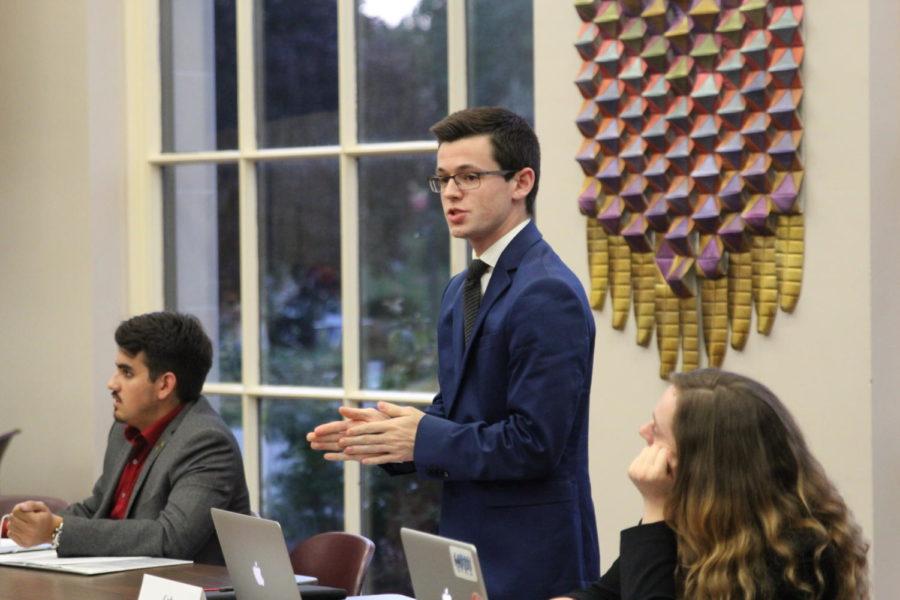Editorial: University needs to take action regarding trademark
Speaker Cody Woodruff touches on concerns with the resolution denouncing Iowa State University’s Trademark Policy at the Student Government meeting on Aug. 30.
October 11, 2018
Iowa State’s Student Government unanimously passed a resolution requesting the university halt further implementation of its newly updated trademark policy Wednesday.
The policy has been met with controversy by both the Student Government and the affected student organizations as it has resulted in clubs having to change their names. For example, what once was “ISU ____ Club” must now be “ ____ Club at ISU.”
This has resulted in student organizations not only having to change their logo and branding, but also their online presence and marketing materials.
While it is worth commending Student Government for taking a stance that advocates for the students and the burden this has placed on their respective organizations, action should have been taken sooner.
Should there have been more outreach or discussion of possible repercussions in advance of the policy rollout by Student Government to its constituents, the reaction this fall may have come at less of a surprise and shock.
That being said, the responsibility now returns to the university to advocate for its students, and any semblance of inaction displays a lack of recognition and respect for both the Student Government and who it represents.
While it may be a difficult task to walk back the policy and reverse the changes that have already been put into place, as many student organizations have already met the compliance needed to fulfill the revised policy, it doesn’t mean that nothing should be done.
Steps the university could feasibly take to better ensure the student voice is represented in the implementation would be to host an open forum for student organizations to have an open dialogue about the impact this policy has had on them.
Should the university adopt a grandfather rule into the trademark policy, as suggested by Student Government, clubs and organizations who do not have the money to invest in new marketing materials could also benefit from having to save the time and energy of completely rebranding.
If anything, the university could issue a statement that better explains the purpose of the policy and why they feel it is important to implement at this point in time. The lagging transparency that has been attached to this issue has helped foster the disappointment and disenfranchisement with administration that has been felt by student organizations.
The path forward may be uncertain, but it is clear that it is not on the university to understand the toll this policy has taken on the students and that action is necessary.
















